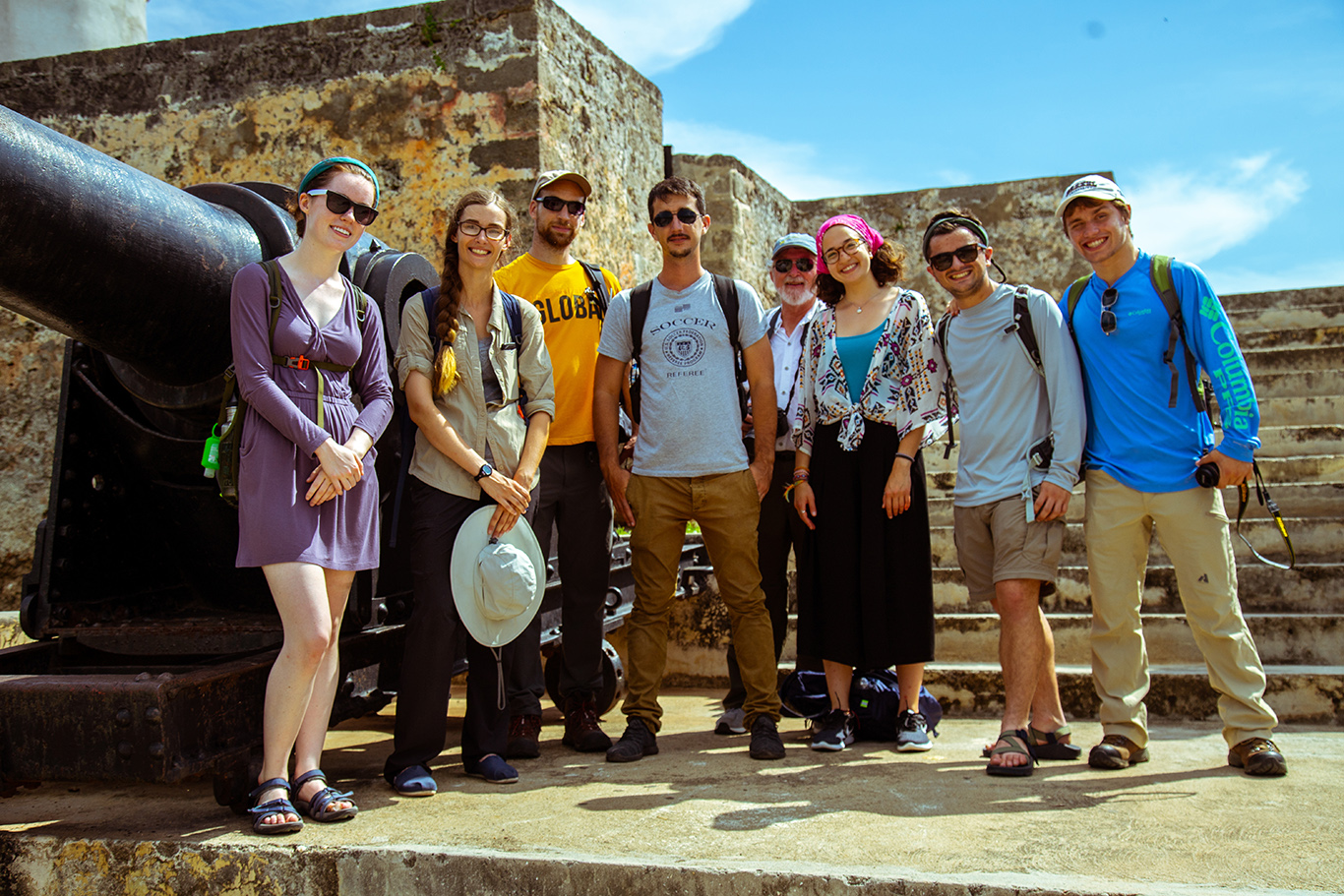Investigating the ecosystem interactions and morphology of Melipona beecheii in collaboration with the University of Cienfuegos, Cuba.
Investigating the ecosystem interactions and morphology of Melipona beecheii in collaboration with the University of Cienfuegos, Cuba.

The research team in Cuba. Photo courtesy of Roger Thomas.
Thanks to funding from the Eva Crane Trust, the Academy of Natural Sciences, and Drexel University Department of Biodiversity, Earth, and Environmental Science and Office of Research, Dr. Dane Ward, graduate student Meghan Barrett, staff Roger Thomas, and four undergraduate students were able to travel to Cienfuegos, Cuba. As part of this trip, we interfaced with local beekeepers and community members, worked alongside scientists and students from the University of Cienfuegos, and researched the learning, morphology, and thermal tolerance of Melipona beecheii bees. While in Cuba, our team had the chance to learn about traditional stingless beekeeping practices, from both urban and rural beekeepers, as well as participate in and learn about Cuban culture, from food, to history, dance, and healthcare.
Students presented their preliminary findings as four separate posters for the Drexel Students Tackling Advanced Research Showcase in August of 2018:
1. Variation in worker caste morphology of Melipona beecheii beecheii.
2. Condition bees in Cuba: assessing the cognitive behavior and color preferences of Melipona beecheii through visual associative learning assays.
3. Microhabitat and introduced species’ effects on native bee community structure in Cienfuegos, Cuba.
4. Limited thermoregulatory mechanisms in foraging Melipona beecheii bees.
Three of these posters were also presented internationally by the students, at the II Conferencia Cientifica Internacional de la Universidad de Cienfuegos, during a follow-up trip in October of 2019. A collaborative oral presentation, “Ecological investigations of Melipona beecheii in Cienfuegos, Cuba”, between ECT Co-PI Dr. Ward and UCF professor Jose Andres Martinez Machado, was also presented internationally at this venue. An additional Drexel student, and a local Philadelphia high school junior, have been brought on to the project to help take morphological measurements for future publication. Student reflections on their trip to Cuba were included on the 9 CIVITAS Global website, and the team’s work has ben featured in an NPR article, an article by the Drexel Triangle, and on the science communication podcast “PhDrinking”.
Our work with our Cuban colleagues established a collaborative research program that will continue to thrive moving forward, with the construction of new research meliponarios on the UCF campus in 2019. Students and faculty at UCF are following up on work started by Drexel team members in 2018, and will also be looking to generate data to improve beekeeping practices in Cuba by looking at the effects of resource allocation on morphology and colony health. In addition, future work by Drexel and UCF colleagues is aimed at surveying native bee communities in and around Cienfuegos, thanks to pilot data generated during the 2018 ECT funded trip, and looking at inbreeding in Cuban M. beecheii populations.
Meghan Barrett and Dr Dane Ward, Drexel University, U.S.A.
In collaboration with: Dr. MVZ. José Andrés Martínez Machado, University of Cienfuegos, Cuba


